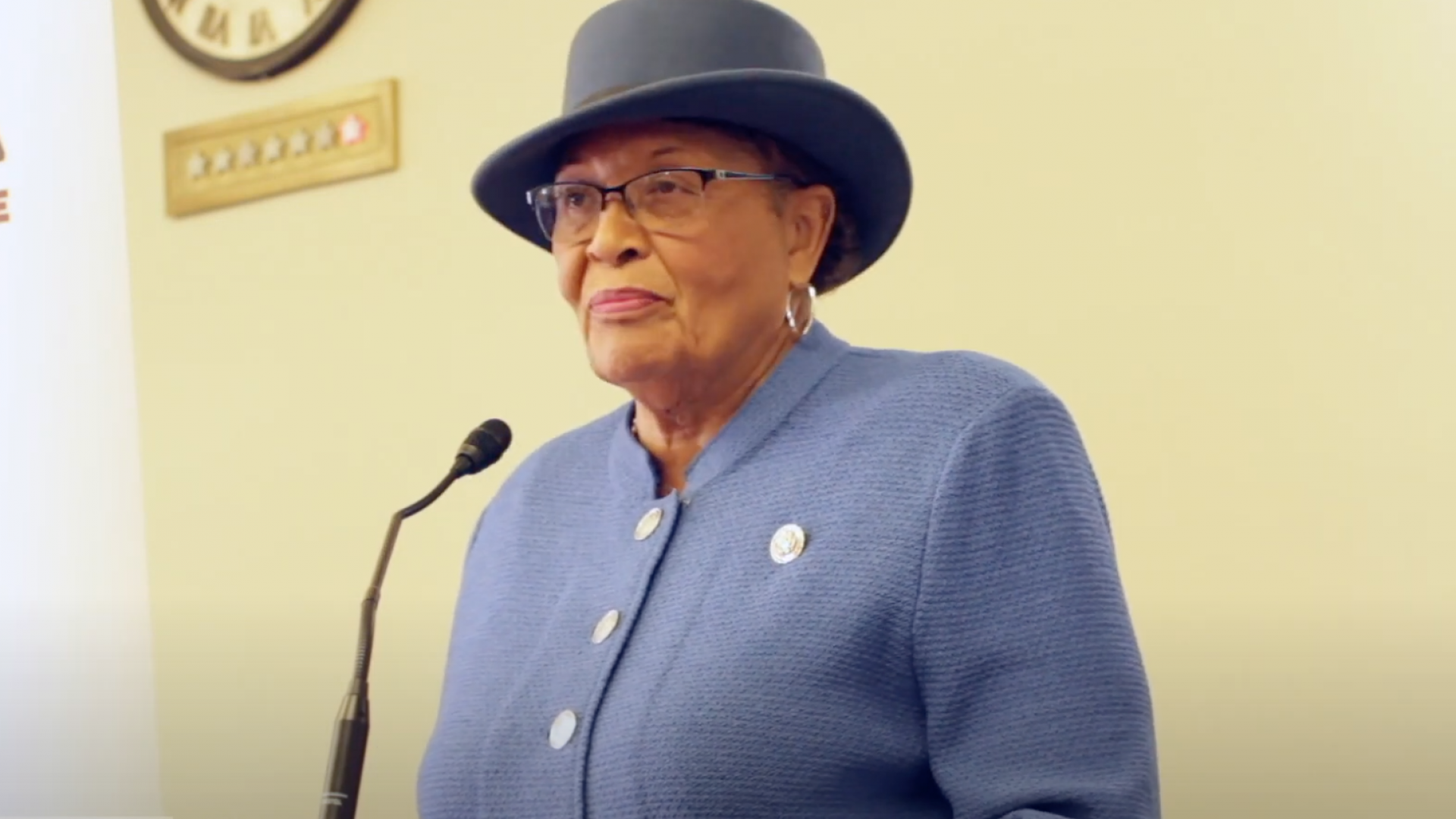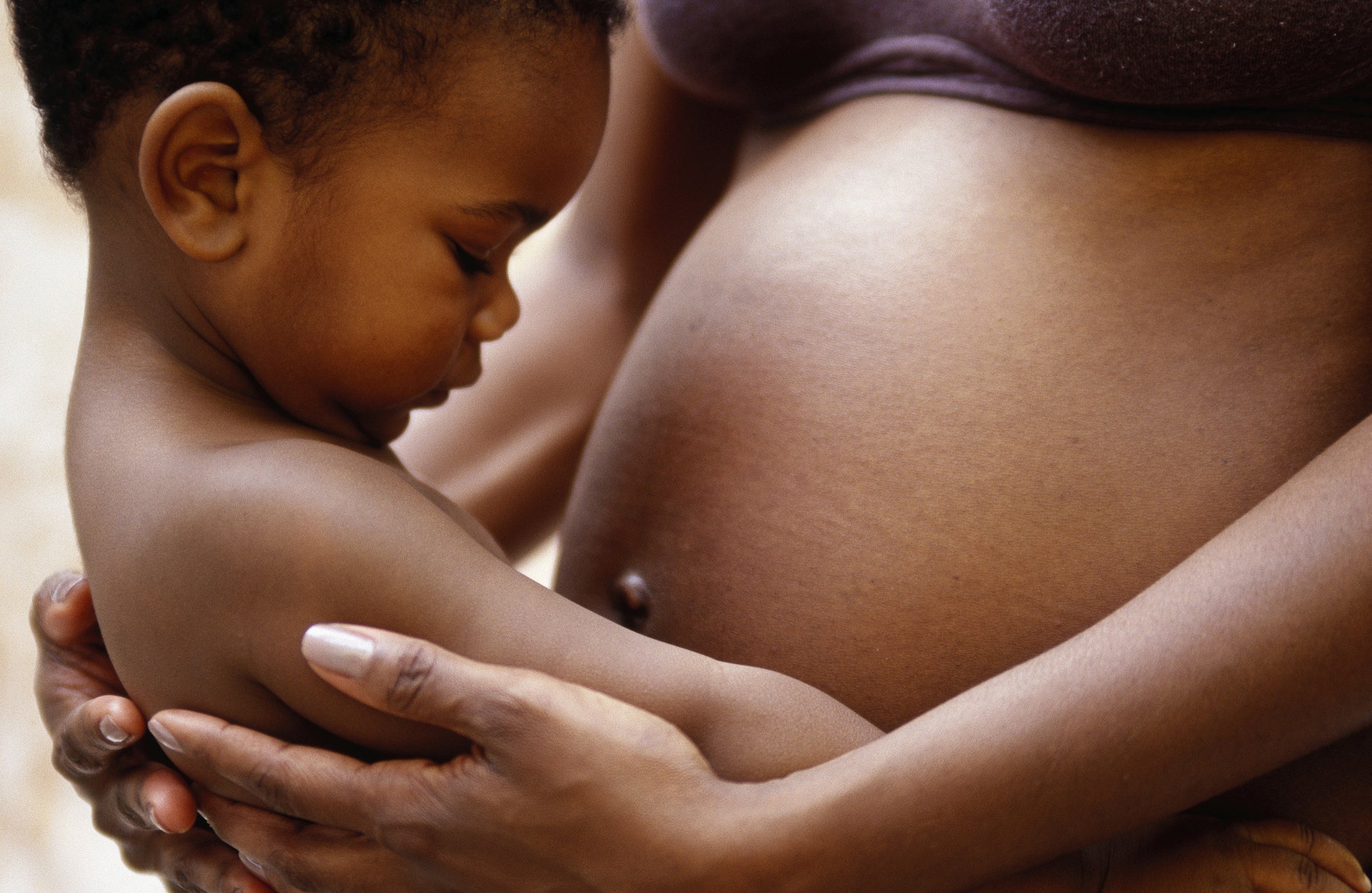
Black women in Congress are sounding the alarm about a new CDC report that reveals shockingly high numbers of pregnant women contracting the COVID-19 virus, with dozens of cases proving fatal.
Since January, more than 38,000 pregnant women have been diagnosed with COVID-19 in the U.S., and 51 of them have died, according to a Centers for Disease Control (CDC) Morbidity and Mortality Weekly Report released this month.
The report found that expectant mothers are more likely to be admitted to the intensive care unit, receive invasive ventilation and are at increased risk of death compared to non-pregnant women.
Monday night, on the House of Representatives floor, Rep. Alma Adams (D-NC) addressed the crisis and its disproportionate impact on communities that already face racial health disparities.
According to 2018 CDC data, between 700 and 900 women lose their lives every year due to pregnancy- or birth-related complications. Nationally, Black women are two and a half times more likely to die from pregnancy-related complications than their White counterparts.
“What we do know is that before the pandemic, Black and Brown mothers were already dying at alarming and unacceptable rates,” Adams said, founder and co-chair of the Black Maternal Health Caucus. “In particular, Black women from all walks of life were three to four times more likely to die from pregnancy-related complications than White women. … We are facing a crisis within a crisis.”

Besides Adams, fellow members of the Congressional Black Caucus (CBC) have been working with stakeholders to develop legislation and plans for eliminating maternal health disparities. Among those tackling this issue are: Rep. Robin Kelly (D-IL), Rep. Lauren Underwood (D-IL), Rep. Ayanna Pressley (D-MA), Rep. Sheila Jackson Lee (D-TX) and Rep. Karen Bass (D-CA), chair of the CBC. So is Sen. Kamala Harris (D-CA), the nation’s new Vice President-elect.
This summer, Harris and Adams co-sponsored the COVID-19 Bias and Anti-Racism Training Act. The legislation is aimed at ensuring hospitals and healthcare providers involved in COVID-19 testing, treatment, vaccine distribution and response, receive implicit bias training. To date, the measure has been referred to the House Energy & Commerce Committee; in the Senate, the bill has been referred to the HELP Committee.
In September, the House passed bipartisan legislation called the Helping MOMS Act. It was introduced by Rep. Kelly, who serves as the CBC’s Health Braintrust Chairwoman. The bill provides states with the option to extend Medicaid coverage through the entire postpartum period of one year. Currently, most states only provide Medicaid coverage for 60 days immediately following childbirth. With more than half of new mothers in the country covered by Medicaid, the Helping MOMS Act could significantly improve these health outcomes. The measure has been endorsed by more than a dozen health and family advocates including: the American Medical Association; Black Mamas Matter Alliance; Black Women’s Health Imperative; and the American College of Obstetricians and Gynecologists.
“This is a big step toward reducing the tragedy of preventable maternal deaths by ensuring new moms can continue to seek necessary medical care,” Kelly told ESSENCE in a statement.
“This is not a magic pill to solve America’s maternal mortality crisis, but this bill provides a solid, bipartisan, evidence-based approach to saving lives. We must continue working, inside and outside of government, to ensure starting a family doesn’t cost a woman her life.”
—
Take a deep breath, Black mamas, and read: Black Mamas Can Thrive During Childbirth, COVID-19 Or Not